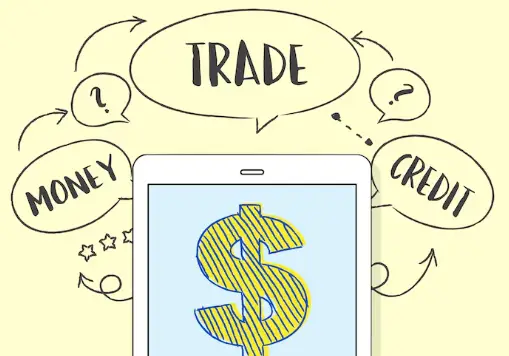
Topics: cross-border payments compliance, international finance law
Introduction
With the increased pressure of financial compliance with cross-border payments and the international finance laws advancing on their way, sending money overseas is no longer a simple act of skillfulness; it takes an extensive knowledge of regulations. Compliance with cross-border payments is not an option nowadays, and only by possessing the knowledge of international finance law can every business and individual escape being on the wrong side of the law
Sending money abroad is neither a matter of skill nor financial deception by banks, although a network of laws, rules and policies just ties and impedes matters like fraud, tax evasion, money laundering, terrorism financing and consumer protection. Failure to comply can result in hefty fines and a ruined reputation. Compliance means following anti-money laundering (AML) rules, conducting Know Your Customer (KYC) checks, and reporting large or suspicious transactions. Countries change these requirements regularly, and sometimes there are also other regulations required in every region or market.

Key Elements of Cross-Border Fund Transfer Regulations
- KYC and AML conditions: There are intense identity verification requirements on the sender and receiver of nearly all cross-border payments, usually through KYC checks. Constant transaction monitoring involves examining the transactions, and as such, it is a requirement in most countries as a way of identifying abnormal, suspicious, or unusual patterns, and an attempt to prevent unlawful practices.
- Fee Transparency: In places like the US, the Remittance Transfer Rule (part of the EFTA) forces service providers to disclose all transfer fees, exchange rates, and delivery timelines before the customer sends any money. This protects the consumers against the unfamiliarity of the prices and also shields against ambiguity in the amount of money that one would receive on the other side.
- Dispute Resolution: There usually exist rules that enable the consumer to challenge the transactions, and there are ways through which the provider should immediately correct the reported faults, and sometimes within 90 days.
- Maintenance of records: Payment service providers in most countries are supposed to keep a proper record of all the transactions they have made for at least five years in case of future audit investigations.
- Sanctions and Screening: Companies are supposed to screen those to whom the money is sent against the sanctions list to avoid unintentionally aiding or abetting the crimes or payment of money to a subject or zone put under a sanctions list.
How International Finance Law Shapes Transfers
In the ecosystem of cross-border compliance, the high point is the international finance law. It encompasses treaties, regulations, and standards—such as those from the Financial Action Task Force (FATF), the Basel Committee, and national authorities like RBI (India’s Reserve Bank) or the CFPB (Consumer Financial Protection Bureau, US).
Some of the latest 2025 developments include:
Complying with FATF Recommendation 16 upgrade: Complying with FATF Recommendation 16 upgrade, financial institutions are increasingly making it harder and harder to be anonymous, i.e. requiring a greater transparency as regards the origin, as regards the beneficiary of all cross-border payments7.
India’s FEMA Amendments (Jan 2025): The RBI changed several Foreign Exchange Management Act rules, tightening and clarifying requirements for both businesses and individuals moving funds in/out of India. There is now a requirement for express RBI authorisation to some types of cross-border payments and a tighter reporting regime.
Building an Effective Compliance Program
The best practices involving the way organisations ensure compliance and are free of penalties include performing risk analysis thoroughly before launching cross-firm engagements or ventures.
- Implement trustworthy compliance plans: Unify the KYC, AML and retention of the records of all transactions.
- Technology investment: real-time transactions to monitor compliance can be done using production of compliance software that can track the real-time transactions and possible occurrence of what is going wrong to raise caution for abnormal transactions.
- Lifelong training: The teams must ensure that they are up-to-date with any changes in the regulatory environment globally.
- Conduct frequent audits: Inspections both inside and out prevent lapses in control and find the issue long before a regulatory body.
What to Watch For in 2025 and Beyond
Catching the wave of digital payments, cryptocurrencies, and fintechs all increasing in popularity, regulators across the world are vowing to tighten the screws, especially over non-bank money service providers, digital wallets, and transmissions over blockchains. Both the US and EU are increasing the penalties for those providers who do not correctly advertise fees or implement poor KYC checks.
Meanwhile, improved legislation and improved international cooperation also promise to increase transparency, restrain financial crime, and render international payments convenient, but secure.

Conclusion
Knowledge of cross-border payments compliance and the principles of international finance law is no longer the expertise of lawyers and giant undertakings alone because the rules are now at the heart of doing international business. Be familiar with them, transparency should be a behaviour, and always be familiar with the new rules. These skills will put you and your money on track, whether you are an entrepreneur, a student of finance, or an early-career professional.
By adopting strong compliance on cross-border payments, not only are legal requirements met, but it also invokes trust amongst international associates. It is best to study and learn the principles of international finance law so that you can be both safe and future-proof about your financial activities. With emerging regulations and requirements to comply, the international finance law should be included in your long-term success strategy as one of the areas of your core.
References
- Convera. (2025). Top 5 cross-border payments challenges of 2025.
https://convera.com/blog/payments/top-5-cross-border-payments-challenges/ - OrderExpress. (2025). What To Know About Cross Border Payments Challenges In 2025.
https://www.orderexpress.com/what-to-know-about-cross-border-payments-challenges-in-2025/ - Papaya Global. (2025). Cross-Border Compliance: Financial, Payments & Regulation.
https://www.papayaglobal.com/blog/cross-border-compliance-guide/ - Finastra. (2025). Cross-Border Payments: Key trends and innovations banks are watching.
https://www.finastra.com/viewpoints/articles/cross-border-payments-key-developments-reshaping-landscape-banks - G20/FSB. (2025). G20 Roadmap for Enhancing Cross-border Payments.
https://www.fsb.org/uploads/P211024-1.pdf - ConduitPay. (2025). 7 Cross-Border Payment Trends to Watch in 2025.
https://conduitpay.com/blog/7-cross-border-payment-trends-to-watch-in-2025 - Razorpay. (2025). Cross-Border Payments: Everything You Need to Know in 2025.
https://razorpay.com/blog/cross-border-payments-guide/ - U.S. Congress. (2025). International Financial Institution Improvements Act of 2025 (official bill text).
https://www.congress.gov/bill/119th-congress/house-bill/3224/text - London SOAS. (2023). Unit 1: The Law of International Finance [PDF].
https://www.soas.ac.uk/sites/default/files/2023-03/M441_unit-01_sample.pdf - Oxford Academic. (2023). The Law of International Financial Institutions. https://academic.oup.com/oxford-law-pro/book/56242

FAQ Section: Cross-Border Payments Compliance
1. What is cross-border payments compliance?
Cross-border payments compliance is the process of following regulations like AML, KYC, and reporting standards when sending or receiving money internationally.
2. Why is cross-border payments compliance important?
It helps prevent financial crimes such as money laundering and fraud, ensures fee transparency, and protects both businesses and consumers in global transactions.
3. What are the main regulations in cross-border payments compliance?
Key regulations include AML laws, KYC identity checks, FATF guidelines, sanctions screening, and record-keeping requirements across jurisdictions.
4. How does AML apply to cross-border payments compliance?
Anti-Money Laundering (AML) rules require monitoring, reporting suspicious transactions, and preventing the misuse of international fund transfers.
5. What role does KYC play in cross-border payments compliance?
KYC ensures that both senders and recipients are properly verified, reducing risks of fraud, terrorism financing, or illegal money transfers.
6. How do sanctions affect cross-border payments compliance?
Financial institutions must screen transactions against sanctions lists to ensure payments do not go to blacklisted individuals or entities.
7. What is fee transparency in cross-border payments compliance?
It means service providers must disclose all charges, exchange rates, and delivery timelines so customers clearly understand transfer costs.
8. How does technology support cross-border payments compliance?
AI-driven monitoring tools and compliance software track suspicious activity in real time, automate reporting, and improve regulatory accuracy.
9. Why is record-keeping required in cross-border payments compliance?
Regulators often require financial providers to store transaction records for at least five years for auditing and investigation purposes.
10. What are the risks of ignoring cross-border payments compliance?
Non-compliance can result in heavy fines, damaged reputation, legal action, and restricted access to international financial markets.
11. How does international finance law guide cross-border payments compliance?
Global frameworks like FATF, Basel Committee standards, and local laws (such as FEMA in India) define compliance obligations for payments.
12. How do dispute resolution rules impact cross-border payments compliance?
Consumers can challenge errors, and providers must resolve disputes within defined timelines—often within 90 days in certain regions.
13. What is FATF Recommendation 16 in cross-border payments compliance?
It requires greater transparency on the origin and beneficiary of payments, reducing anonymity and preventing financial crime.
14. How are fintechs affected by cross-border payments compliance?
Digital wallets and non-bank providers face stricter compliance rules, including enhanced KYC, AML checks, and disclosure obligations.
15. How do audits strengthen cross-border payments compliance?
Regular audits—internal and external—help organizations detect risks, correct weaknesses, and avoid regulatory penalties.
16. How do cryptocurrencies impact cross-border payments compliance?
Crypto transfers face growing regulation, with increased scrutiny on wallet identities, exchange reporting, and anti-terror financing measures.
17. What training supports cross-border payments compliance?
Continuous training keeps compliance teams updated on changing global laws, reducing risks of accidental violations.
18. How do U.S. and EU laws affect cross-border payments compliance?
Both regions require strong KYC checks, fee disclosures, AML monitoring, and apply severe penalties for non-compliance.
19. What are best practices for cross-border payments compliance?
Best practices include risk analysis, compliance technology adoption, frequent audits, and building a culture of ethical transactions.
20. How does cross-border payments compliance build trust?
Compliance ensures transparency, protects clients, and strengthens trust with global partners, making international transactions smoother.
Penned by Ansh Aggarwal
Edited by Sneha Seth, Research Analyst
For any feedback mail us at info@eveconsultancy.in
Finance made simple, fast, and fun! 🏦💡 Sign up for your daily dose of financial insights delivered in plain English. In just 5 minutes, you’ll be smarter already!
Simplify Your Business Compliance with Eve Consultancy
Eve Consultancy is your trusted partner for end-to-end compliance services, including Company Incorporation, GST Registration, Income Tax Filing, MSME Registration, and more. With a quick and hassle-free process, expert guidance, and affordable pricing, we help businesses stay compliant while they focus on growth. Backed by experienced professionals, we ensure smooth handling of all your legal and financial requirements. WhatsApp us today at +91 9711469884 to get started.
